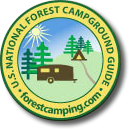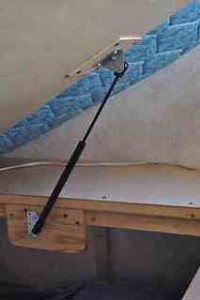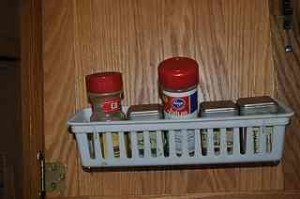What, Where, How and When of Packing an RV – Lessons learned
What to pack when you travel in a recreational vehicle (rv) is simple – take everything you need. Your rv will be either your vacation or primary home and you’ll want to duplicate the comforts of home. Afterall, you aren’t a tent camper anymore. We have seen people bring their fancy coffee makers, sewing machines, a utility trailer full of power tools, and lots of other stuff. It’s all a matter of priorities. Here are some thoughts from what we have learned traveling for months in our rv that might help you.
The first thing you should pack are the Absolute Necessities. Define Absolute Necessities as something that if you realize it was forgotten, you would turn around and go get it (e.g. laptop computer, passports, or heart medication) or accept the expense and purchase a replacement (e.g. cellphone, printer paper, or meat thermometer). After the Absolute Necessities comes the Absolute Nice-to-have (e.g. a fleece jacket, four months worth of Spam or dressy sun dress), and the priorities continues down to Things I Need if the World Ends (e.g. fancy jewelry and crystal wine glasses).
Where to put things should be governed by where they are needed, along with where physical space is available and your rig’s weight restrictions. You’ll want hookup and leveling equipment convenient and accessible since its used every time you set up or break down. Outside stuff, like drinking water hoses or lounge chairs, can be stored in your rig’s exterior cabinets or in the back of your towed or towing vehicle. Remember, storage of sewer hoses and related equipment MUST BE in a separate location so that it will NOT contaminate drinking water equipment. You’ll want to store heavy stuff low in your rig, so look for places under the bed, sofa or your rig’s basement, for things like canned goods, heavy hiking boots, and such. Kitchen stuff should be kept in the gallery or kitchen area, but many RV galleries are tiny. Limit the need for storing pantry items by buying things you need when you need them. Unless you are heading into the Alaskan Bush, hauling a dozen cans of soup around really isn’t practical.
How can you optimize packing your RV. Here are some methods we’ve used:
- Use the “nesting” technique as much as possible. Look for “nesting” possibilities beyond your mixing bowls and measuring cups. Hiking socks tucked into hiking boots, scarves and gloves stuffed into knit caps, road atlas and other travel literature nestled can the space behind your rig’s seats;
- Reduce the multiple products for the same job. A multi-purpose cleaner might do the job of two or three individual cleaning products. A moisturizer with sunscreen eliminates the need for a separate moisturizer and a bottle of sunblock. Baking soda is a good scrubbing agent while vinegar works on grease and disinfect most surfaces.
- Samples are good for short RV adventures. They take less room and weigh less than in full sized containers. Don’t want to go with samples? Pick up an assortment of small plastic containers and fill them up. Be sure to label everything so you know which is what. Is even that more than you need? Use one of those 7-day pill containers or a contact lens holder. Both can be found in most pharmacies/drug stores.
- Always be on the lookout for storage places or ideas. There is a three-inch space behind the
bench in our kitchen – perfect for hanging various grille tools like forks and scapular. We also use the inside of kitchen cabinet door by hanging small rectangular plastic baskets off them and store small tins (original held various teas) spices and herbs there.
- Take only the clothes you’ll need for seven to ten days. That should be enough if you practice mix-and-match techniques.
- Non-skid material help to keep things in place and will deaden noise during travel;
- Use boxes, bins, and/or bags to store stuff by category. For example: I use a little box for hair clips, bobby pins, etc.; small baskets for spices; a crate for boots; and large plastic “space-saver” bags for blankets.
- Many rigs have storage space under beds and sofas. Look to see if a collection of clear plastic boxes might not add organized storage for you. We found under our bed is a great place for winter clothes, extra blankets, business-related stuff, and gifts.
- Mount hooks in corners and/or out-of-the-way places. These are great for storing clothes, towels, dog leashes, brooms, and more.
- Don’t forget the shower stall’s potential. It is a good place for your laundry bag. Lay some of that non-skid material across the shower floor and you have a safe place for plants, coffee pot, etc. while moving down the road.
- Minimize packing and unpacking your rig by permanently storing as much as possible in it. In the kitchen, you don’t need to unpack cooking and eating utensils, most appliances, and non-perishable food stuff each time a trip ends. However, there are field mouse were we store our motorhome. I have learned rodents are very resourceful and now never leave anything behind that the might chew or claw through in their search for food.
- Everyone, and this includes pets, their own area for just their stuff. Make the individual responsible for their own stuff. Be sure they understand that this it is all theirs but there is no more room for more.
When to start thinking about packing an RV about the same time you decide where you are going but limit the actual time spent packing to just a few days. There are hundreds of lists available on the Internet that are helpful to get you started, but you should modify any of these lists to your own special circumstances. You will probably want to make some changes to your lists to improve it usefulness after your travels.
Perhaps the best tip is to just go and don’t worry about what you might have forgotten. There are thousands of stores along the way. And you might discover, before you even get to the store, the forgotten item was really wasn’t in that “if the world ends” category.




